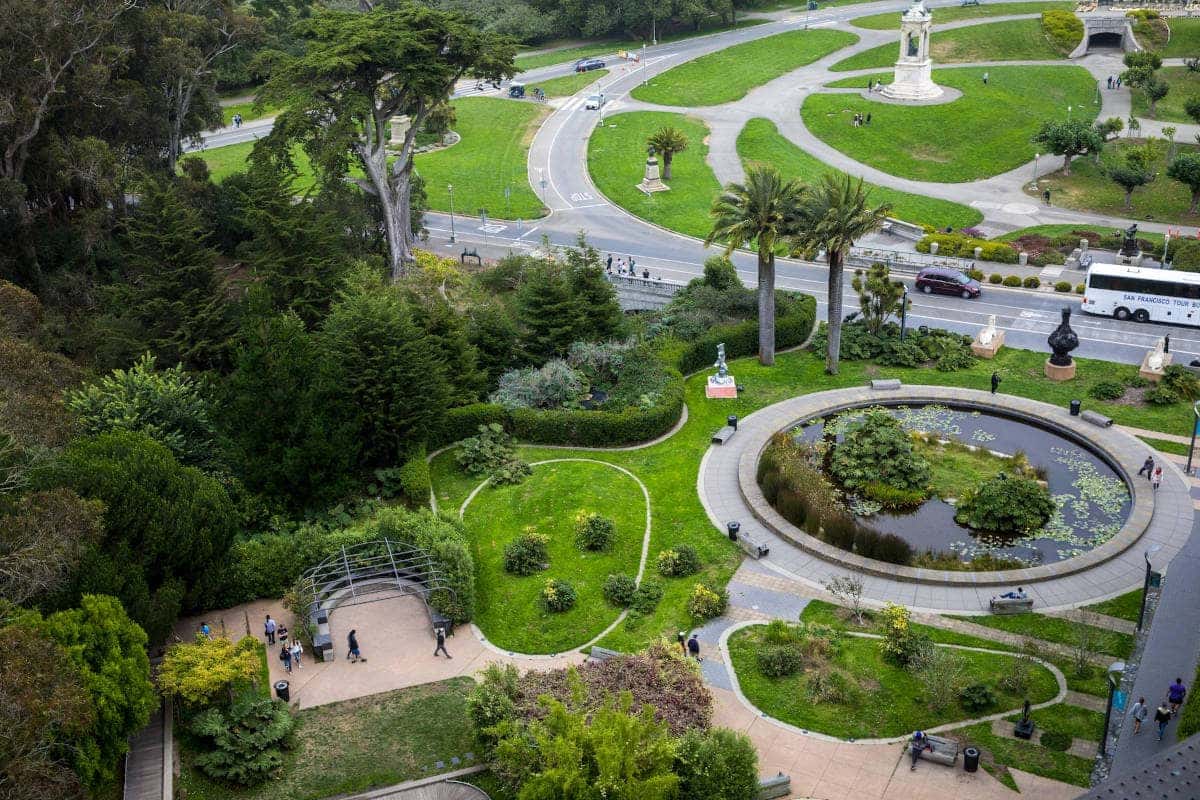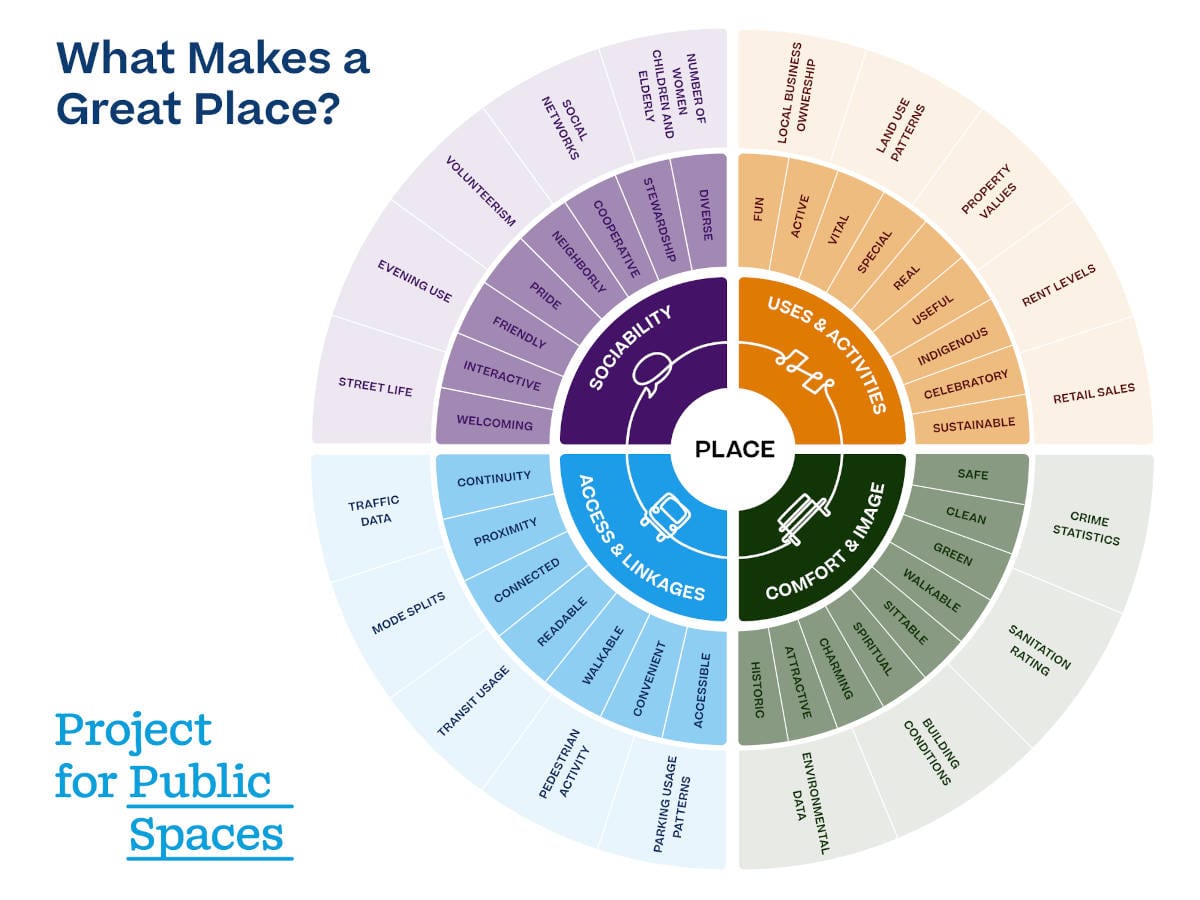
Commercial landscaping serves an important purpose for businesses and commercial properties – far more important than just acting as the face of your business. With careful planning and design choices, your property can become a vibrant, welcoming environment that is sure to draw people in and make it the place to be.
This is where the principles of placemaking come into play, an underutilized and often misunderstood approach to the planning, design, and management of public spaces. Applying these principles to your commercial landscaping design allows you to develop a dazzling property that will leave a lasting impression.
In this article, we will delve into the core principles of placemaking, and how you can apply them in your commercial landscaping design:
What is Placemaking?
Placemaking is a “function over form” approach to planning public spaces that puts the emphasis on creating usable places for people to gather and socialize. This isn’t to say that placemaking doesn’t care about curb appeal; creating an attractive space is still a key component of placemaking.
Placemaking is commonly used in urban planning, starting at the city level. Each city has several destinations within it, such as a downtown square, a park, or a museum. Within each of these destinations are several “places”, areas that give people things to do in that space, such as:
- A bench area
- A small coffee shop with tables
- A water fountain or duck pond
- A group of food carts with picnic tables
- A kids playground area
Although you may not be looking to add a coffee shop or a large duck pond to your commercial property, you can still take advantage of the core principles of placemaking in your landscaping design.
There are four core principles of placemaking; when all four are working together in harmony in your landscaping design, then you have the right recipe to create a truly great commercial landscape:
The 4 Pillars of Successful Placemaking
Accessibility and Linkages
The first core principle of placemaking is accessibility and a place’s connections to its surroundings. People should be able to easily access your property and any places on it. Some ways you can make your property accessible and well-connected include:
- Use hardscapes to connect all areas of your commercial property
- Make areas well-connected to prevent roundabout routes from Point A to Point B
- Use wheelchair-friendly materials for your hardscapes, such as large concrete slabs (either seamless or without large gaps between slabs) and tile
- Install sidewalk guides for visually impaired people who use white canes
- Install stairs and ramps for terrain that is difficult for people with limited mobility
Uses and Activities
Creating places that can be used for various activities is another important aspect of successful placemaking. Even relatively simple amenities can go a long way toward creating functional spaces, such as:
- Seating areas where customers or employees can meet up for lunch
- Play areas for businesses frequented by customers with children
- Native plants and water features that attract pollinators and birds
- Shade via trees, awnings, etc.
- Trash and recycling bins near eating and seating areas
Adding amenities and functional elements allows people to use and interact with your property instead of just passing through on their way from one area to another. Utilitarian landscaping choices add value to your property by inviting people to not only visit but to stay and enjoy it.
Sociability
Functional and usable spaces tend to be places where people want to gather and socialize. Creating a welcoming and friendly atmosphere with your landscaping design will attract people to your property and give them places to spend time with other people. This will make them want to stay longer and come by more often.
Social spaces add incredible value to commercial properties because they help businesses connect with their community. Whether it’s throwing an annual summer cookout for your employees or holding seasonal events with your customers, using your place as a venue for socializing will help create bonds and lasting relationships within your community.
Comfort and Image
Although placemaking puts an emphasis on function over form, designing an attractive property still plays a key role in creating great places. However, designing a beautiful place goes beyond pure aesthetics; creating a safe, clean, and welcoming environment is what can truly set your property apart.
Ways that you can boost your property’s comfort level and image include:
- If your property gets a lot of visitors, ensure there are enough places to sit, whether alone or in groups
- Utilize triangulation to create effective spaces (i.e., if you’d like to create an eating area, place a bench, a table, and a trash can together instead of spreading them out across the property)
- Incorporate energy efficient landscaping like using trees and shrubs to provide shade, create windbreaks, and cover areas from rain and snow
- Improve safety and security with ample lighting, handrails/guardrails, and security systems
- Maintain the property with lawn care, trash policing, and other upkeep
Create a Functional and Beautiful Landscape Using Placemaking Principles With GroundMasters
Whether your placemaking projects are big or small, GroundMasters Landscape Services has the team of experts you need. We can help you create a functional and beautiful property that is sure to draw customers in and become the place to be in your community.
Along with landscape enhancements, we also offer year-round landscaping and grounds maintenance services, including lawn care, irrigation system maintenance, and tree & shrub care – along with storm cleanup and snow & ice removal services for when bad weather hits.
To see what GroundMasters can do for your Denver-area business or commercial property, give us a call at (303) 750-8867 or get in touch with us online to get started.

